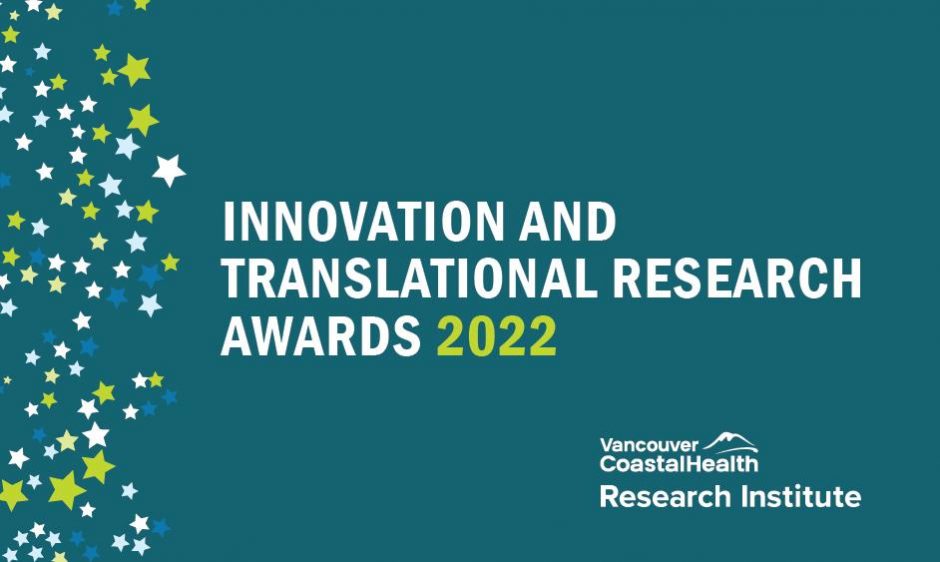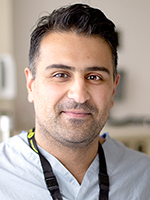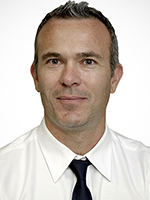Three members of the UBC Department of Medicine are the recipients of a VCHRI 2022 Innovation and Translational Research Award

Awards are open to health care professionals, clinicians and researchers throughout VCH and PHC’s health care and research facilities.
The intent of this competition is to fund innovative research that will:
- have an impact on patient care at VCH and/or PHC
- provide savings for the health system at VCH and/or PHC
- create a medical device and/or commercial opportunities from pre-existing research outcomes
For all award winners, please visit VCHRI
MACHINE LEARNING FOR BETTER DETECTION OF SKIN COMPLICATIONS AFTER INSULIN INJECTION
 Dr. Kenneth Madden (Division of Geriatric Medicine)
Dr. Kenneth Madden (Division of Geriatric Medicine)
Study: The use of machine learning detection of lipohypertrophy to improve glycemic variability
Funded by: VGH & UBC Hospital Foundation
Lipohypertrophy — the formation of lumps of scar tissue or fat under the skin — is the most common type of skin complication after insulin injection therapy in diabetes. It can alter insulin absorption and result in high blood sugar variability. It is also often difficult to detect. On top of this, few clinicians are trained in both bedside ultrasound and diabetes management.
This study will assess the efficacy of a supervised machine learning algorithm developed by the research team to detect lipohypertrophy on portable ultrasound images. It will also test whether injecting insulin into areas without these lesions will show less blood sugar variability on machine learning-interpreted ultrasound images as compared to injecting areas with these lesions.
“Poor blood sugar control is a source of increased morbidity, mortality and health care costs to treat persons with diabetes,” says Dr. Madden. “The results of our study could offer a rapid and low-cost method to improve blood sugar control without requiring extensive ultrasound training for diabetes educators.”
USING BIOMARKERS TO DETECT DELAYED SECONDARY BRAIN INJURY
 Dr. Mypinder Sekhon (Division of Critical Care Medicine)
Dr. Mypinder Sekhon (Division of Critical Care Medicine)
Study: Characterization of injury to the neurovascular unit in aneurysmal sub-arachnoid hemorrhage using brain biomarkers
Funded by: VGH & UBC Hospital Foundation
Delayed brain injury remains a significant cause of morbidity among patients who have experienced a brain hemorrhage — a type of stroke from a burst artery in the brain. Diagnosing delayed secondary brain injury currently requires advanced neuroimaging or an examination by an expert neurologist, both of which can be hampered by resource limitations.
Researchers will test a point-of-care device to measure whether real-time, non-invasive brain injury biomarkers have the potential to screen patients, expedite a diagnosis and help rule out delayed secondary brain injury when a clinical exam or neuroimaging results are indeterminate.
“There is considerable opportunity to improve upon diagnostic processes and mitigate risk to patients with brain injury,” says Dr. Sekhon. “These biomarkers could facilitate the triage of diagnostic and management interventions, as well as improve patient outcomes.”
USING AEROBIC EXERCISE TO IMPROVE HEALTH OUTCOMES FOR SEPSIS SURVIVORS

Dr. John Boyd (Division of Critical Care Medicine)
Study: Aerobic exercise training as a therapeutic intervention to improve outcomes in sepsis survivors
Funded by: VGH & UBC Hospital Foundation and Providence Research
Sepsis is the result of organ failure-related infection in at least one organ system, often leading to admission to a critical care unit for advanced life support measures. In survivors of this serious illness, 30-50 per cent will have a sepsis readmission within the year. Low quality of life, high rates of muscle weakness and activity limitation are listed as the most pressing issues facing sepsis patients after a critical care discharge. Improving the cardio-respiratory function of this patient population could increase their chances of survival and help them resume important activities.
This study will assess the safety and feasibility of a 10-week aerobic exercise training program for sepsis survivors. Outcome measures will relate to cardio-respiratory function as well as reduced long-term adverse events.
“This intervention has the potential to revolutionize the lives of sepsis survivors, empowering patients to take back their health through safe, personalized exercise,” says Dr. Boyd.
Please join us in congratulating Drs. Madden, Sekhon, and Boyd on this wonderful achievement!
This story originally appeared on VCHRI News